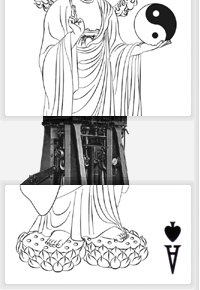六成副學士指課程貨不對辦 (2006-12-28 06:05:00)
【明報專訊】每年公開試放榜前後,各大提供副學位課程院校的招生廣告、課程資料鋪天蓋地。不過,有調查指六成受訪的副學位學生指出,部分招生資料名不副實,
入讀後才發覺課程銜接和學歷認受均存在問題。
關注副學位大聯盟在上月至本月中,透過問卷和網上調查,訪問了 1348名聲稱來自逾 10間院校的副學位學生,絕大部分就讀自資副學士課程。 63%的學生認為現時就讀的課程,與報讀前所獲取的資訊存有差距。當中七成人認為升學學位較少,逾一半人認為課程的學歷認受性不足、學生資助較差和就業前 景不明。
教協轟招生章程誤導
聯盟成員之一教協副會長馮偉華批評,部分院校為招徠學生,課程章程內容誤導:「例如籠統地說升讀學位比率有五六成,但卻沒有註明這個比率是包含自資學位、與海外合辦的學位課程。」
他提醒同學在報讀前,應做足資料蒐集,仔細留意章程內運用的字眼,例如可詢問院校該課程去年有多少學生升讀受政府資助的學位課程。
他又指出,現時副學士學生為了負擔每年 4至 5萬元的高昂學費,都會向政府申請借貸,但院校把學費的三分之一交予政府,用以攤還興建校舍的費用,他認為「同學借政府錢,卻替院校供樓」的方法不可取,建議政府豁免大專院校建校貸款,把全數學費用回學生和教學上。
「同學借政府錢替院校供樓」
教統局發言人指,政府已對副學士作出了重大承擔,包括提供免息貸款、透過批地計劃以象徵式地價批撥土地予院校,以及津貼資助教育機構在開辦初期的學術評審費用,並指政府有必要善用公帑,以更好地利用有限的資源。
If my declining memory does not fail me, I remember ages ago, my dearest friend Magliabecchi alias 倉海君, related to me of teenager school leavers with eager hearts to further their studies, feeling discontent with the Associate Degree Progam offered by Lingnam University when after two years’ time, the cruelty of truth eventually became known to these grievous souls that their future prospect was never as promising as pictured, if not promised, by the prospectus. Many of them were unable to get enrolled in the undergraduate programme offered by the same university, despite of the fact that they had already attained the threshold entrance requirement set out by the university. To my surprise, same subject again became 28th December 2006 Mingpao’s story-headline and a statistic revealed that nearly 60% of the students complained that the actual course content has turned out different from what was represented in the prospectus, let alone their qualifications are not widely recognised.
In a situation as such, there is very little these students could do, other than seeking remedies by means of Contract Law. Apart from their limited financial resource to bring a civil action against a government-funded tertiary institution, their cause of action does not take them any further than claiming a small sum of damages. Any 1st year law student, after reading the reported fact, may conjecture there is an action on misrepresentation. A contract may become voidable on the ground of misrepresentation if an offeree (student) to the contract is induced to enter into an agreement with the offeror (teritary institution) on reliance of a representation made by the offeror, which he knows to be untrue or whose genuinity. he cares little about. However the first hurdle that the claimant, students in our situation, has to jump over, is to prove this representation has materially affected him in his decision-making for the application of the associate degree course. According to Anson’s Law of Contract (27th ed) by J.Beatson Q.C., it is said that “the representation need not be the sole or decisive inducement provided it did in fact materially affect the other party’s intention to enter into the agreement.” The action would fail if either the student would make his application anyway or he knows the representation untrue or the said representation does not carry any weight with his decision-making.
The last but also the highest hurdle for the student to overcome, is to show before the court that the present situation is reversible, or the positions of both the offeror and offeree could be restored back to the state as if no contract has ever been made. Any prudent defence advocate would stand up on his hindlegs and raise the defence of restitutio in integrum aloud in court, confronted with such a situation as the above. Unless the trial judge is bold as well as brutal, if not innovative, enough to order a 250lbs heavy-weighted boxer battering with violence the student’s head to a state so that he would entirely forget all the knowledge he has acquired through his associate degree education. But I believe no ordinary man could survive a deadly battery as such. Or perhaps in a more civilised manner, it might be suggested that a brainwashing machine be used to sweep off discriminately the claimant’s knowledge and memory in relation to his associate degree, other than that I do not see how restitution could be achieved, or the contract be rescinded.
The last resort is, of course, suing the teritary institution in question for a simple breach of contract. But in the first place, the claimant has to convince the court that all those alluring words inside the prospectus such as‘a brighter prospect’, ‘universal recognition’, ‘continuation of undergraduate education’ etc are intended to be part of the contract. If there is no meeting of minds or consensus ad idem between the students and the teritary institution, there is hardly any contract terms, let alone breach of contract. And even if those words become part of the contract terms, it is still necessary for the court to distinguish them from condition to warranty. The difference is simply a breach of condition will render the whole contract be rescinded, and a mere breach of warranty only entitles the claimant to receive damages. The test illustrated in Hong Kong Fir Shipping v Kawasaki [1962] 2 QB 26, to the best of my knowledge, is still good law and it is said in the judgment that if the breach is so severe that it would deprive the plaintiff from what he has originally contracted to enjoy, it would be a breach of condition; otherwise it would only be a breach of warranty. In the Hong Kong Fir Shipping case, although the ship hired was defective, it could still be operated by the plaintiff therefore it was ruled by the English Court that the breach was only a breach of warranty. Applying the same principle to our hypothetical situation, the students did in truth receive their education and graduate with an Associate Degree, however worthless it might be, and they would only be awarded with damages at most. If what the teritary institution taught at school was totally different from what had been mentioned in the prospectus, the students might be able to argue that was a breach of condition.
Fraud under the skin of education – Associate Degree in Hong Kong
標籤:
左冷禪
訂閱:
發佈留言 (Atom)



1 留言:
教育制度商業化﹐不是一朝一夕發生的事﹐一紙通書是否真的代表了成就學識? 但是不用證書去辨別﹐又該如何去介定每人對謀行業的資格? 一向中國人的父母﹐也逼子女讀書﹐讀書就代表了銀紙﹐教育又在這群人要投身搵錢一族前刮翻筆﹐形成急速啤成的垃圾人才。不要說醫生律師﹐就說廚子﹐以前日本壽司師傅大多需要七年才能成師﹐現在求其找找飯糰﹑識劏魚就叫壽司師傅了。
發佈留言